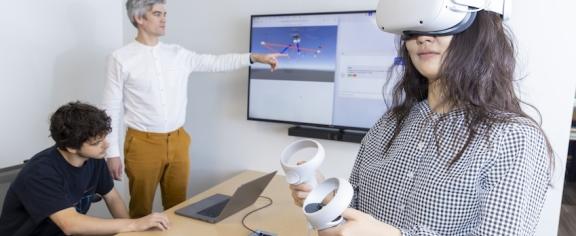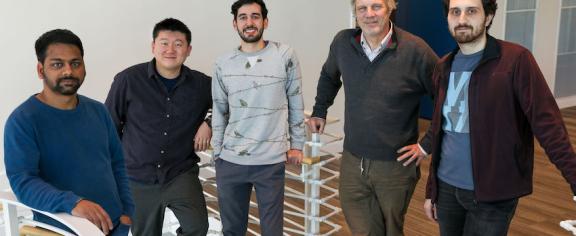2025-03-14
Ph.D. student Phillip Si and Assistant Professor Peng Chen developed Latent-EnSF, a technique that improves how ML models assimilate data to make predictions.
2024-11-15
The Automatic Speech Recognition (ASR) models that power voice assistants like Amazon Alexa may have difficulty transcribing English speakers with minority dialects.
2024-08-07
A study of language detection software found that algorithms struggle to differentiate anti-Asian violence-provoking speech from general hate speech. Left unchecked, threats of violence online can go unnoticed and turn into real-world attacks.
2024-06-27
A new AI teammate developed by Assistant Professor Christopher MacLellan could be the ideal co-opt video game partner.
2024-07-11
A new data visualization tool designed by a Georgia Tech Ph.D. student is helping a team of microbial ecologists, geobiologists, and oceanographers gain more insight into how deep-sea microorganisms interact within their environment.
2024-06-20
Improving mobile internet service by removing the data cap has large benefits for disadvantaged households.
2023-11-29
The National Institute of Health (NIH) has awarded Yunan Luo a grant for more than $1.8 million to use artificial intelligence (AI) to advance protein research.
2023-12-20
The feasibility study by Georgia Tech researchers explores using conditional normalizing flows (CNFs) to convert seismic data points into usable information and observable images. This potential ability could make monitoring underground storage sites more
2023-09-28
School of Computational Science and Engineering (CSE) Assistant Professor Peng Chen is co-principal investigator of a $1.5 million National Science Foundation grant to develop the CRIS-HAZARD system.
2024-04-17
Georgia Tech is one of the first research universities in the country to receive the GH200 Grace Hopper Superchip from NVIDIA for testing, study, and research.








